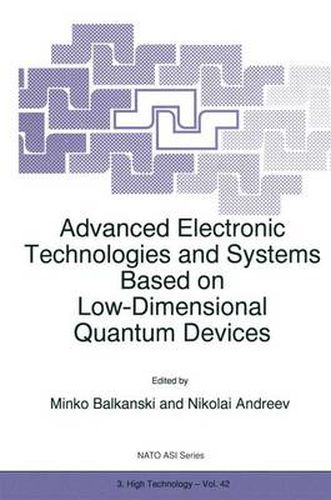Readings Newsletter
Become a Readings Member to make your shopping experience even easier.
Sign in or sign up for free!
You’re not far away from qualifying for FREE standard shipping within Australia
You’ve qualified for FREE standard shipping within Australia
The cart is loading…






This title is printed to order. This book may have been self-published. If so, we cannot guarantee the quality of the content. In the main most books will have gone through the editing process however some may not. We therefore suggest that you be aware of this before ordering this book. If in doubt check either the author or publisher’s details as we are unable to accept any returns unless they are faulty. Please contact us if you have any questions.
The major thrust of this book is the realisation of an all optical computer. To that end it discusses optoelectronic devices and applications, transmission systems, integrated optoelectronic systems and, of course, all optical computers. The chapters on ‘heterostructure light emitting devices’ ‘quantum well carrier transport optoelectronic devices’ present the most recent advances in device physics, together with modern devices and their applications. The chapter on ‘microcavity lasers’ is essential to the discussion of present and future developments in solid-state laser physics and technology and puts into perspective the present state of research into and the technology of optoelectronic devices, within the context of their use in advanced systems. A significant part of the book deals with problems of propagation in quantum structures. ‘soliton-based switching, gating and transmission systems’ presents the basics of controlling the propagation of photons in solids and the use of this control in devices. The chapters on ‘optoelectronic processing using smart pixels’ and ‘all optical computers’ are preceded by introductory material in ‘fundamentals of quantum structures for optoelectronic devices and systems’ and ‘linear and nonlinear absorption and reflection in quantum well structures’. It is clear that new architectures will be necessary if we are to fully utilise the potentiality of electrooptic devices in computing, but even current architectures and structures demonstrate the feasibility of the all optical computer: one that is possible today.
$9.00 standard shipping within Australia
FREE standard shipping within Australia for orders over $100.00
Express & International shipping calculated at checkout
This title is printed to order. This book may have been self-published. If so, we cannot guarantee the quality of the content. In the main most books will have gone through the editing process however some may not. We therefore suggest that you be aware of this before ordering this book. If in doubt check either the author or publisher’s details as we are unable to accept any returns unless they are faulty. Please contact us if you have any questions.
The major thrust of this book is the realisation of an all optical computer. To that end it discusses optoelectronic devices and applications, transmission systems, integrated optoelectronic systems and, of course, all optical computers. The chapters on ‘heterostructure light emitting devices’ ‘quantum well carrier transport optoelectronic devices’ present the most recent advances in device physics, together with modern devices and their applications. The chapter on ‘microcavity lasers’ is essential to the discussion of present and future developments in solid-state laser physics and technology and puts into perspective the present state of research into and the technology of optoelectronic devices, within the context of their use in advanced systems. A significant part of the book deals with problems of propagation in quantum structures. ‘soliton-based switching, gating and transmission systems’ presents the basics of controlling the propagation of photons in solids and the use of this control in devices. The chapters on ‘optoelectronic processing using smart pixels’ and ‘all optical computers’ are preceded by introductory material in ‘fundamentals of quantum structures for optoelectronic devices and systems’ and ‘linear and nonlinear absorption and reflection in quantum well structures’. It is clear that new architectures will be necessary if we are to fully utilise the potentiality of electrooptic devices in computing, but even current architectures and structures demonstrate the feasibility of the all optical computer: one that is possible today.